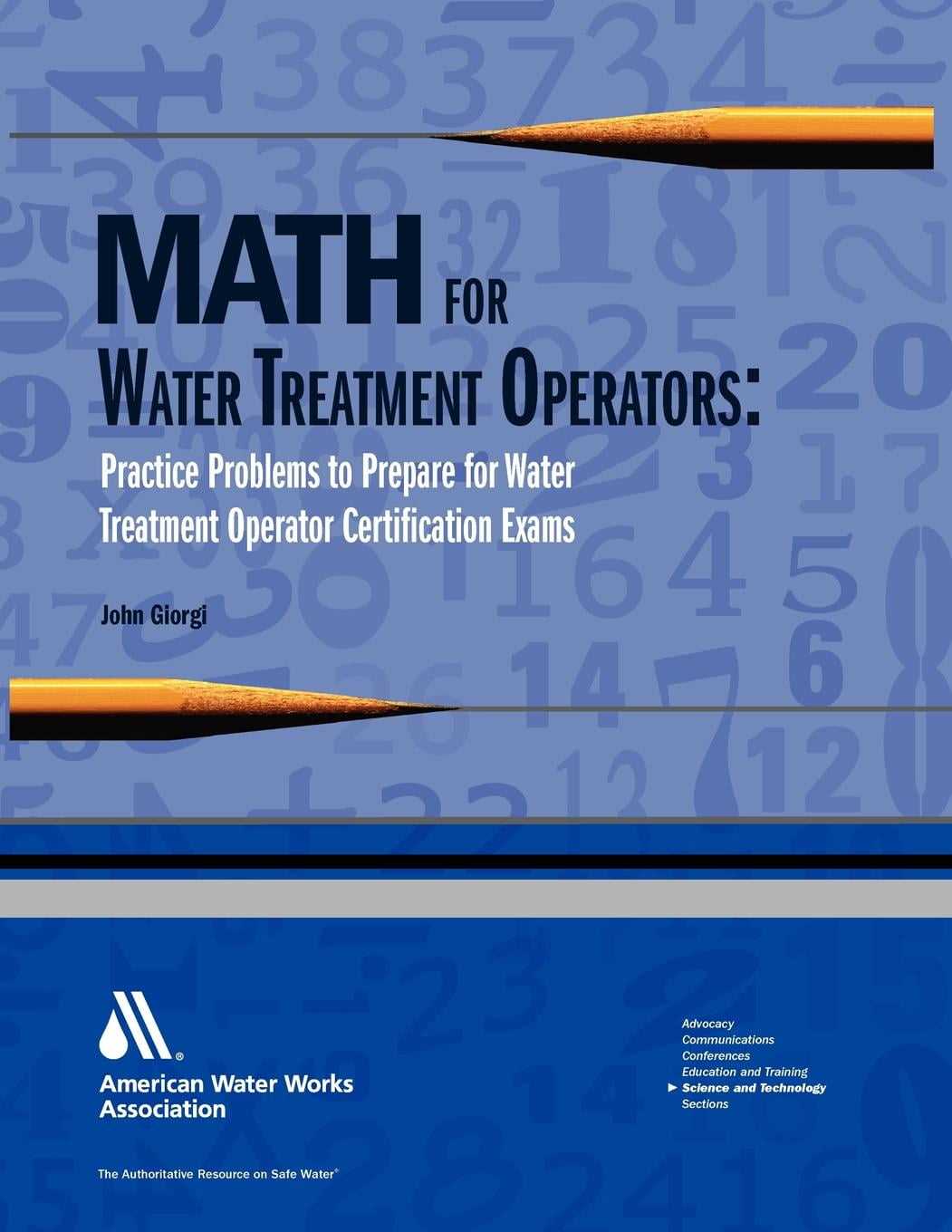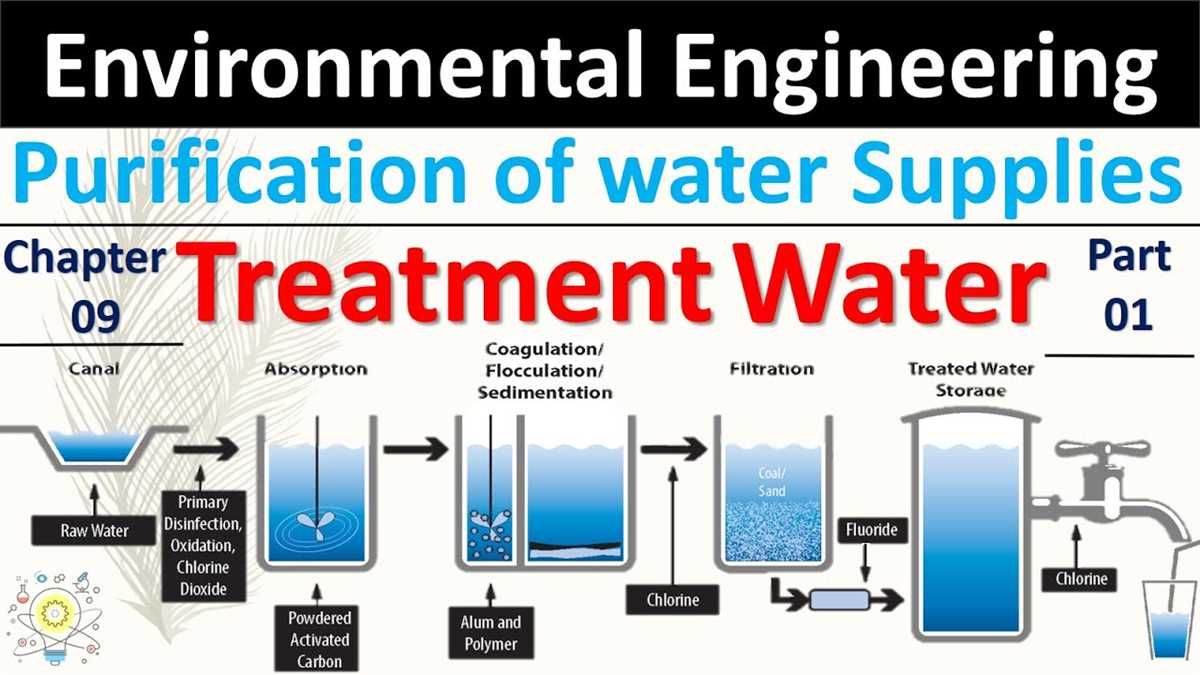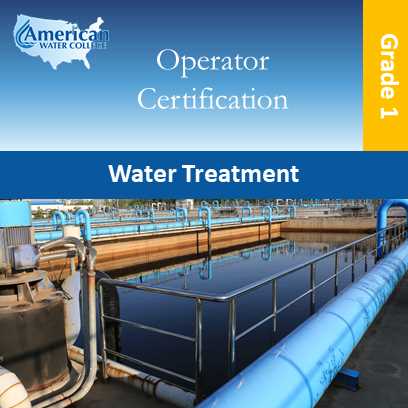
Water treatment is a crucial process that ensures the provision of safe and clean drinking water to communities. It involves various methods and techniques to remove contaminants and impurities, making the water suitable for consumption. As water treatment professionals, it is essential to have a thorough understanding of the principles and practices involved in this field. One effective way to assess and enhance this knowledge is through water treatment practice exams.
Water treatment practice exams are designed to simulate real-life scenarios and test your comprehension of the different aspects of water purification. These exams cover a wide range of topics, including water chemistry, coagulation and flocculation, sedimentation, filtration, disinfection, and water distribution. By taking these practice exams, you can evaluate your understanding of these subjects and identify any knowledge gaps that need to be addressed.
The questions in water treatment practice exams are typically multiple-choice or true/false format, allowing you to assess your knowledge and apply it to practical situations. They are designed to challenge your critical thinking skills and problem-solving abilities, simulating the complexities and challenges faced in real-world water treatment plants. By regularly taking these practice exams, you can improve your ability to make informed decisions and troubleshoot issues that may arise in a water treatment facility.
Water treatment practice exams also serve as an excellent study tool. By going through the questions and answers, you can reinforce your understanding of key concepts and reinforce important information. These exams can also help in familiarizing yourself with industry-specific terminology and regulations, ensuring that you are well-prepared for any water treatment certification or licensing exams.
What Are Water Treatment Practice Exams?
Water treatment practice exams are mock tests designed to assess and evaluate the knowledge and skills of individuals in the field of water treatment. These exams are specifically tailored to cover various aspects of water treatment, including water quality assessment, filtration methods, disinfection techniques, and regulatory compliance.
Water treatment practice exams typically consist of multiple-choice questions and scenarios that test the examinee’s understanding of water treatment processes, equipment, and applicable regulations. They simulate real-life situations that water treatment professionals may encounter and require critical thinking and problem-solving skills.
The purpose of water treatment practice exams is to provide individuals with the opportunity to assess their readiness and identify areas where further study and improvement may be necessary. These exams can be used as a study tool to reinforce knowledge and test-taking skills before taking actual certification exams or as a self-assessment tool for professionals seeking to enhance their expertise in water treatment.
Why Are Water Treatment Practice Exams Important?

Water treatment practice exams play a crucial role in ensuring the quality and safety of our water supply. These exams test the knowledge and skills of water treatment professionals, helping to identify any gaps or areas for improvement in their understanding of water treatment principles and techniques. By regularly taking practice exams, professionals can stay up-to-date with the latest advancements and best practices in the field, ensuring that they are equipped to handle any challenges that may arise in the treatment process.
One of the key reasons why water treatment practice exams are important is that they help professionals identify and correct any weaknesses in their knowledge and skills. Through the exam questions, professionals can assess their understanding of different water treatment processes, such as coagulation, flocculation, sedimentation, filtration, disinfection, and pH adjustment. This self-assessment allows professionals to focus on areas where they may be lacking in knowledge or skills, enabling them to further develop and improve their expertise in water treatment.
Furthermore, water treatment practice exams help ensure compliance with regulatory standards and guidelines. By testing professionals on the specific regulations and requirements set by authoritative bodies such as the Environmental Protection Agency (EPA), practice exams help ensure that water treatment facilities meet the necessary standards for providing safe and clean drinking water to the public. These exams also help professionals stay updated on any changes or updates in regulations, ensuring that they are aware of any new requirements and can implement them effectively in their work.
In conclusion, water treatment practice exams are essential for professionals in the field as they help identify knowledge gaps, improve skills, and ensure compliance with regulatory standards. By regularly taking practice exams, water treatment professionals can stay updated with the latest advancements and best practices in the field, ultimately contributing to the provision of safe and clean drinking water for communities around the world.
Benefits of Water Treatment Practice Exams

Water treatment practice exams are a valuable tool for those studying water treatment and desalination processes. These exams provide an opportunity to test and assess one’s understanding of the subject matter, ensuring that knowledge is solidified and retained. By practicing with exam-style questions, individuals can identify areas of weakness and focus their attention on those specific topics.
One of the main benefits of water treatment practice exams is that they simulate the conditions of a real exam. This allows individuals to become familiar with the format, timing, and difficulty level of the questions they may encounter. By gaining this familiarity, test takers can reduce anxiety and improve their overall performance during the actual exam. Furthermore, practice exams often include detailed answer explanations, allowing individuals to learn from their mistakes and further enhance their understanding of the material.
It is also worth noting that water treatment practice exams provide a benchmark for progress. By regularly taking these exams, individuals can track their improvement over time and identify areas where they have made significant strides. This can be highly motivating and serve as a confidence booster as individuals approach their official water treatment certification exams.
Additionally, water treatment practice exams enable individuals to not only learn the material but also develop effective test-taking strategies. Through repetitive exposure to exam-style questions, individuals can learn to approach problems systematically, manage their time effectively, and eliminate incorrect answer choices.
In conclusion, water treatment practice exams offer numerous benefits to individuals studying the subject. They serve as a means of assessing and solidifying knowledge, familiarizing test takers with exam conditions, providing detailed answer explanations, serving as a benchmark for progress, and helping individuals develop effective test-taking strategies. Therefore, incorporating practice exams into one’s study routine can greatly enhance the overall learning experience and increase the chances of success in the official certification exams.
Improved Test-Taking Skills
In the field of water treatment, having strong test-taking skills is crucial for success. These skills can help to accurately assess knowledge, identify areas for improvement, and ultimately achieve better results on exams.
1. Time Management: Effective time management is essential when taking water treatment practice exams. By allocating a specific amount of time to each question or section, test-takers can ensure that they have enough time to complete the entire exam without rushing. This includes reading questions carefully, analyzing options, and avoiding spending too much time on difficult questions.
2. Attention to Detail: Attention to detail is another important skill for water treatment exams. Test-takers must carefully read and understand each question, paying attention to key terms, quantities, and requirements. This can help to avoid misinterpretation and ensure that the correct answers are chosen.
3. Note-Taking and Review: Taking notes while studying for practice exams can improve test-taking skills. This can include summarizing key concepts, creating flashcards, or marking important sections in textbooks or online resources. Reviewing these notes before the exam can help to reinforce knowledge and improve retention.
4. Test Simulation: Practicing with simulated water treatment exams can be highly beneficial. These practice exams recreate the structure, format, and types of questions that will be encountered during the real exam. By familiarizing themselves with the exam format, test-takers can reduce anxiety and improve their performance.
5. Self-Assessment: Lastly, self-assessing is an important skill to improve test-taking abilities. After completing practice exams, it is important to review and analyze the answers. This can help to identify areas of strength and weakness, allowing test-takers to focus their studying efforts accordingly.
- Time management
- Attention to detail
- Note-taking and review
- Test simulation
- Self-assessment
Enhanced Knowledge Retention
In the field of water treatment, acquiring and retaining knowledge is crucial for professionals to effectively address the challenges and complexities associated with water treatment practices. Enhanced knowledge retention plays a significant role in ensuring that professionals have a strong foundation and understanding of key principles and techniques.
One way to enhance knowledge retention is through regular practice exams. These exams provide individuals with the opportunity to apply their knowledge in a structured and timed manner, simulating real-world scenarios. By testing their understanding of various concepts and problem-solving skills, practice exams reinforce learning and help in identifying areas that require further study.
Additionally, incorporating different learning techniques can also contribute to enhanced knowledge retention. Visual aids, such as diagrams and charts, can help individuals grasp complex concepts more easily. Group discussions and case studies enable professionals to collaborate and gain insights from their peers, further solidifying their understanding of the subject matter.
Another effective approach to enhancing knowledge retention is through continuous learning and professional development. Attending conferences, workshops, and seminars allows professionals to stay updated with the latest advancements in water treatment practices. Furthermore, engaging in ongoing education programs and certification courses ensures that individuals remain knowledgeable and well-equipped to tackle emerging challenges in the field.
Identifying Areas of Weakness

When studying for water treatment practice exams, it is important to identify areas of weakness in order to focus your efforts on improving those specific areas. By recognizing where you struggle the most, you can allocate more time and resources to mastering those topics, ultimately increasing your chances of success on the exam.
One effective strategy for identifying areas of weakness is to take practice exams or quizzes. These assessments will help you gauge your knowledge and understanding of the subject matter. Pay close attention to the questions you answer incorrectly or struggle with the most. These are the areas that require further attention and review.
- Review your notes and textbooks for the topics that you struggle with the most. Take the time to thoroughly study and understand the concepts and principles behind these topics. Consider seeking additional resources, such as online tutorials or videos, to aid in your understanding.
- Consider forming a study group with classmates or colleagues who are also studying for the exam. Discussing and explaining concepts to others can help solidify your own understanding and identify areas where you may have gaps in your knowledge.
- Utilize flashcards or other memorization techniques to help you remember key concepts, formulas, or definitions. Repetition and regular review of these flashcards will help reinforce your understanding and improve your retention of the material.
- Seek feedback from your instructors or mentors. They may be able to provide insights into your strengths and weaknesses and offer guidance on areas where you should focus your attention. Take advantage of office hours or other opportunities for one-on-one discussions.
- Lastly, practice, practice, practice! The more you engage with the material and apply your knowledge to practice questions, the better prepared you will be for the actual exam. Consider using online resources or textbooks that offer a variety of practice questions to test your understanding.
By following these strategies and actively seeking out areas of weakness, you can tailor your studying to address these shortcomings and significantly improve your chances of success on water treatment practice exams.
Types of Water Treatment Practice Exams
When preparing for a water treatment certification exam, it is important to practice with different types of exams to ensure thorough and comprehensive preparation. Here are a few types of water treatment practice exams that can be helpful:
- Multiple Choice Exams: These exams consist of a question followed by several answer choices. Candidates need to select the best answer from the options provided. Multiple choice exams mimic the format of many certification exams and help test takers practice their knowledge recall and decision-making skills.
- Matching Exams: Matching exams require candidates to match terms or phrases from one column with their corresponding definitions or descriptions in another column. These exams assess a candidate’s ability to accurately identify and associate concepts, which is an essential skill in water treatment.
- True/False Exams: True/false exams involve statements that candidates need to classify as either true or false. These exams test a candidate’s understanding of specific concepts and their ability to discern factual information from incorrect statements.
- Problem-Solving Exams: Problem-solving exams present candidates with realistic scenarios or case studies related to water treatment. Candidates need to analyze the information provided and apply their knowledge and problem-solving skills to determine the best course of action.
In addition to these types of exams, candidates may also find practice exams that focus on specific areas of water treatment, such as disinfection, filtration, or water quality testing. These specialized practice exams can help candidates target their studying and identify areas where they need additional review.